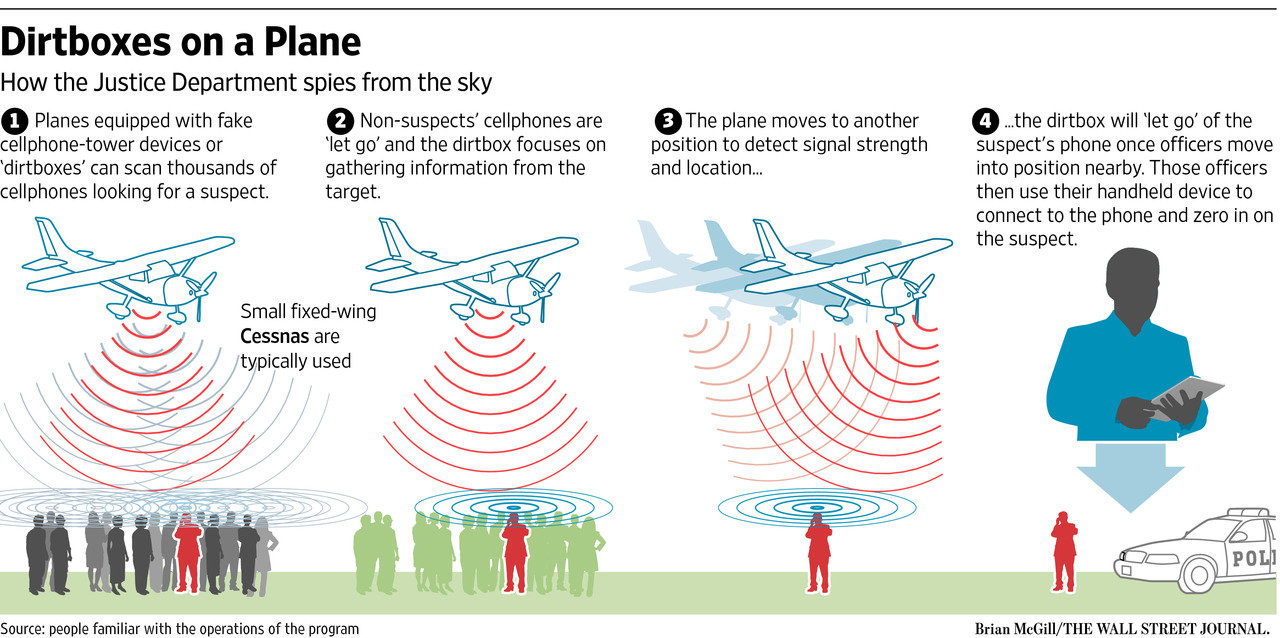The United States Department of Justice has reportedly decided that the use of controversial cell phone tracking devices — Â widely known as "stingrays" — Â by its agencies must be more closely monitored, and is preparing to launch an extensive internal review while publicly revealing more details about the secret programs.
The review will result in the implementation of new guidelines for the use of these devices by the Drug Enforcement Administration, the U.S. Marshals, and the FBI, according to the Wall Street Journal. Officials will also explain why and how the secretive boxes are used, but the extent of those disclosures has not yet been decided.
"We know it's got to come out," one law enforcement official told the publication. "At some point, it becomes more harmful to try to keep it secret than to acknowledge it. We just want to acknowledge it carefully and slowly, so we don't lose what is a very effective tool."
Currently, each agency has their own rules and procedures for deploying so-called stingrays —  including whether an operation requires a warrant — and those with access are prohibited from describing the devices' technical capabilities, even if called to do so in court.
Stingray devices masquerade as cell towers, scanning mobile phones as they attempt to connect. Their widespread use has angered privacy advocates, who argue that the boxes facilitate illegal mass surveillance, especially since they are often used without a warrant.
In addition to legal and privacy concerns, stingrays can affect the operation of mobile networks. Though non-target devices are quickly "let go," or told to search for another tower, the FBI has recently acknowledged that it can cause interference over a large area.
"Because of the way, the Mobile Equipment sometimes operates," an FBI agent recently testified, "its use has the potential to intermittently disrupt cellular service to a small fraction of Sprint's wireless customers within its immediate vicinity. Any potential service disruption will be brief and minimized by reasonably limiting the scope and duration of the use of the Mobile Equipment."
 AppleInsider Staff
AppleInsider Staff








 Malcolm Owen
Malcolm Owen
 Amber Neely
Amber Neely


 Christine McKee
Christine McKee

 Chip Loder
Chip Loder
 Marko Zivkovic
Marko Zivkovic









12 Comments
Apple, thanks for trying to protect your customers by encrypting their data! The U.S. government cries foul about data encryption while secretly invading citizens' privacy.
What, me worry about privacy? I am sure that the govt folx with access to these devices will only use them for good and there is no way one of these could get into someone else's hands that might misuse them.
I know lets ask Edward Snowden. He was with the NSA and knows about these things.
Apple, thanks for trying to protect your customers by encrypting their data! The U.S. government cries foul about data encryption while secretly invading citizens' privacy.
Too bad they don't encrypt our IP data -- I would like to know that I can have a reasonable chance of having a private call with someone (although nothing is truly secure) by making it one level more difficult. The cost of implementation would probably not give a ROI that makes sense to any but the most paranoid and those powerful enough to deal with the issue other ways.
Kudos to Apple also!
Apple, thanks for trying to protect your customers by encrypting their data! The U.S. government cries foul about data encryption while secretly invading citizens' privacy.
I wonder what your response will be when a nuke goes off in an American city and the government didn’t have a clue it was coming because they couldn’t monitor cellphone traffic.
Remember the DEA is not a police force and they can pretty much do what they like and are not bound by the same laws as the police. They do not need search warrants and such since they can not arrest you. They can contain you while the real police show up and arrest you. Any evidence they gather is fair game since they are not police and they can share it with police because of this.